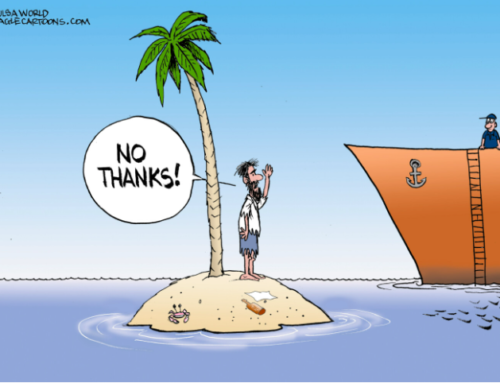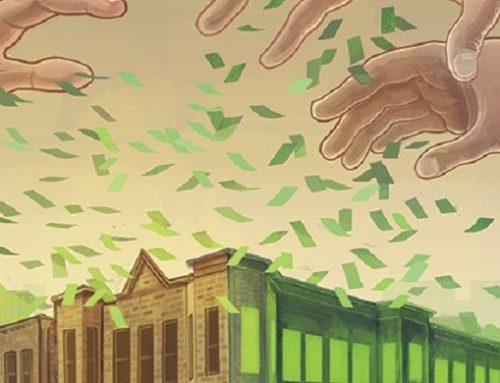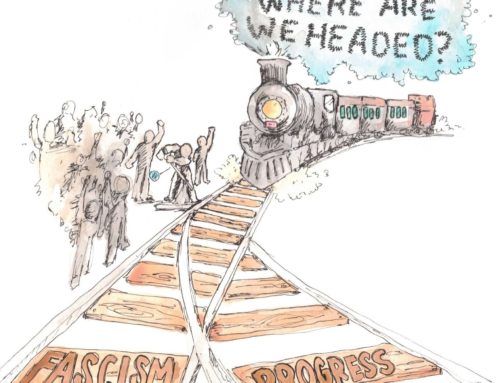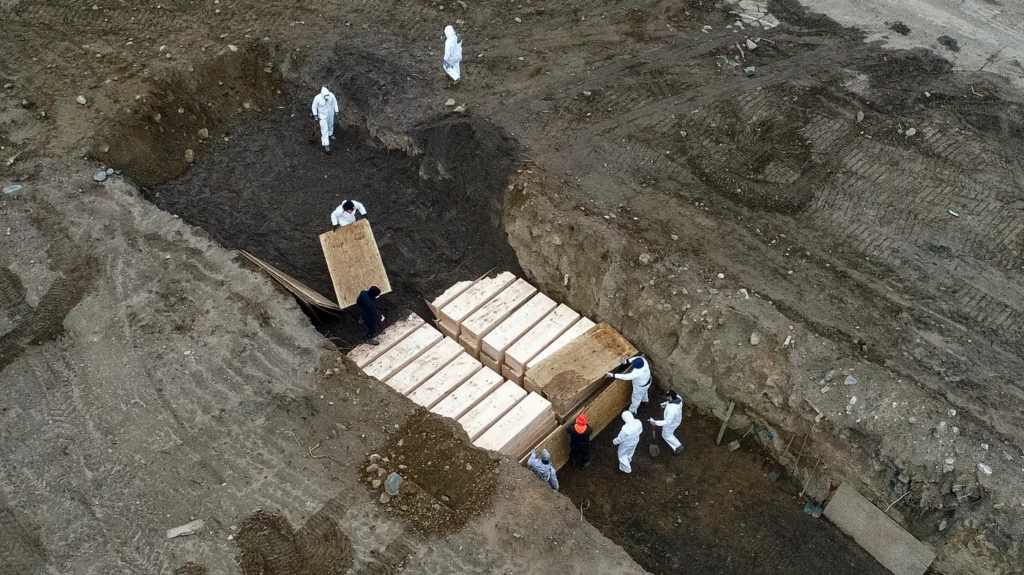
Drone Footage Shows Mass Coronavirus Graves On Hart Island In New York, Vice News // AP PHOTO/JOHN MINCHILLO
In the fall of last year, before novel Coronavirus or COVID-19 was on everyone’s tongues, I was spending a lot of time in hospitals. I would leave the house as the sun was going up to try to catch doctors on their rounds; I would stay late waiting for test results or discharge orders. Before my dad got his diagnosis, we would leave the hospital with no answers, often told that they had to make room for patients with life threatening illnesses. My dad, writhing in pain and struggling to breathe, was not a priority. However, we could wait a month to see a specialist on an outpatient basis. We could finish this round of antibiotics (administered despite no sign of a bacterial infection) and see what happens. One doctor discharged my dad saying, “you just need to learn to take deeper breaths.” Half a dozen times over the course of two months, we ended up back in the emergency room in a week or less with new and increasingly dangerous symptoms.
It feels strange writing this now as doctors, nurses, and emergency responders struggle at the front lines of a global pandemic. The rage I felt six months ago still feels fresh, but as I watch videos of refrigerated trucks becoming makeshift morgues and ER doctors scrounging for ventilators, I can’t put a face or name to the feeling anymore. One tweeted hot take might start to sum it up: “we’re not dealing with a failing medical system, we’re dealing with a failing medical industry;” an industry that never had the capacity to do what it promised because its function was never to address a societal issue, but to commodify even the most basic necessities of human life.
We already know what this looks like. You don’t need to have a sick family member to understand that pharmaceutical companies are only concerned with their bottom lines and hospitals are corporations before they’re institutions of care. We know there’s an issue when hospital bed turnover is treated the same as restaurant tables or department stores – i.e. get them out as soon as possible with as little risk to us and as much extraction from them as you can. The cruel contradictions of capitalism’s price tag on human life have never been more blatant. How else can we account for the US Department of Health and Human Services paying almost $14 million to a private company to develop low-cost, portable ventilators, and then that private company turning around and selling commercial versions for higher profit before supplying US hospitals with ANY of what they so sorely need now?
And while Medicare for all seems like a solution, it doesn’t address the real scope of what we’re dealing with. Decades after we confirmed pharmaceutical waste was changing the sex of fish, we’re still seeing the creation of super bugs as a direct result of medicine manufacturing, just now in “developing” (read: dominated) countries. In Haiti, factory workers were struggling for liveable wages with little to no access to healthcare before this pandemic. Now they’re expected to return to work to manufacture our face masks with no guarantee they’ll have the protection they need. We’re gearing up to repeat history with pharmaceutical companies mobilizing to create vaccines at the expense of Africans who are unable to pay for the treatment tested on them. Changing the output of the U.S. health industry doesn’t address the fact that people dominated by imperialism are risking their lives for access to basic needs just so that we can reap the benefits. Medicine, medical device and equipment manufacturing, and medical treatment have reached a point of global entanglement through the fever-pitch of imperialism that cannot be reformed through one country’s stop-gap measure.
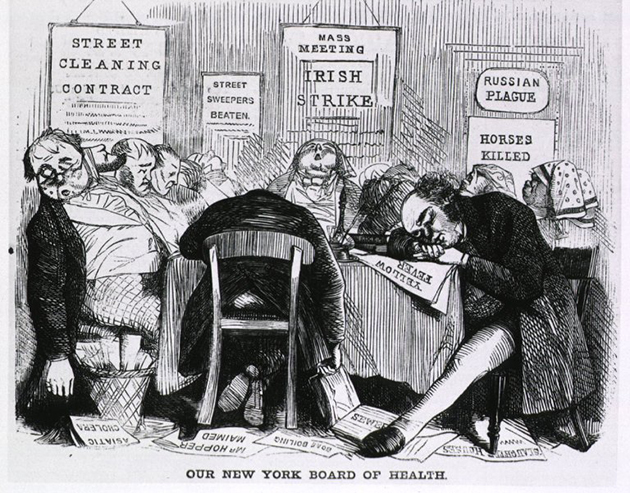
An 1865 cartoon from Harper’s Weekly ridicules the incompetence of the New York City Board of Health, first established to fight yellow fever, Mother Jones // US National Library of Medicine
By sheer coincidence, my dad had signed up for Medicare right before his health crisis. One of the two insulins he’d been prescribed wasn’t covered because his new supplemental medicine plan refuses to supply that brand. Between the inundated pharmacy, my dad’s overworked primary care physician (who should probably retire, but can’t), and apathetic insurance agents, no one can find an equivalent medicine. His copay went from $30 to $230 for two weeks’ supply of insulin pens. He simply doesn’t use that insulin anymore. We don’t know what the effects will be for the long term.
The sixth time I brought my dad to the emergency room, something shifted. I returned to the hospital the next morning to find he had been admitted into a large suite, three times the size of the rooms he’d been admitted to before. Suddenly people seemed only too willing to accommodate his pain management (and extra pudding) needs, whereas he’d previously been told that obtaining morphine for him was a long process. The attending physician went from avoiding us to calling other doctors for us and making us printouts of resources. Around that time, my dad’s Medicare status had been confirmed – they would have no issues getting paid. Was that what caused the shift? Or was it the fact that, six visits later, they figured they probably had a lawsuit on their hands? My dad was sent home with the diagnosis and treatment he needed to start considering a return to a semblance of a normal life, now on immunosuppressant drugs.
I worry about him a lot with the outbreak of COVID-19. While we’ve made sure he doesn’t need to leave his house, he still gets packages and food delivered. My siblings and I visit with him when we’re dropping off meds or groceries, trying to clean the surfaces we touch as we go along. I worry about bringing him back to the same hospital that so thoroughly infuriated me before. I’m afraid of not being able to visit him there as protective measures intensify all over the world. I worry about the same tunnel vision I witnessed in the overworked nurses and doctors caring for my dad the first time – will they overlook the complexities of his overlapping conditions as they work to treat a disease they don’t know much about? I worry about his body ending up in a mass grave.
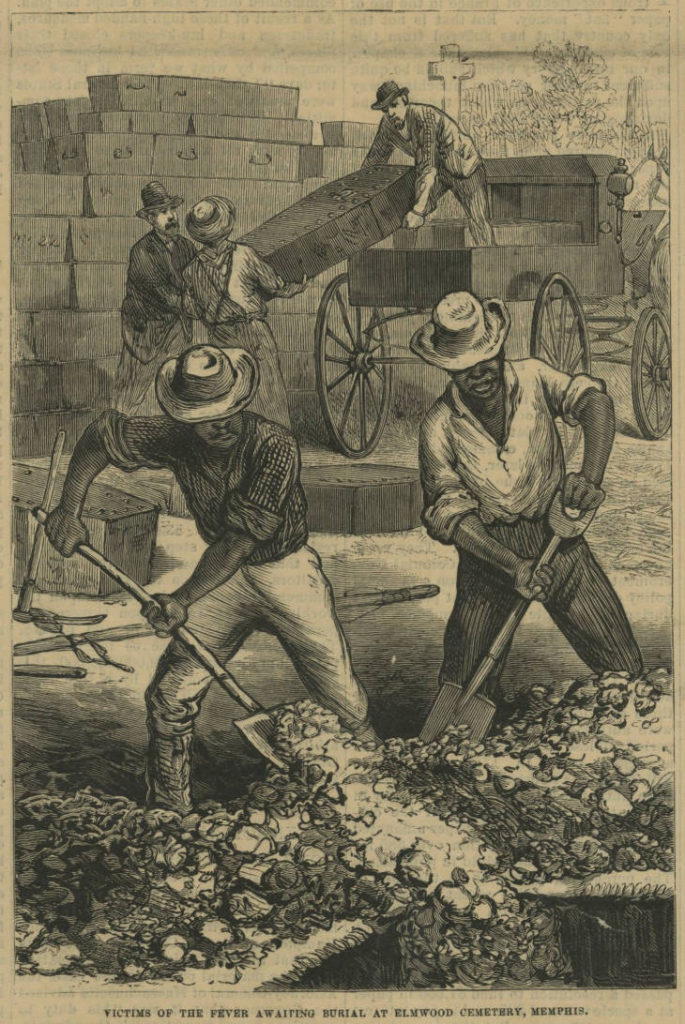
“Victims of the Fever Awaiting Burial at Elmwood Cemetery, Memphis.” One of seven illustrations on the cover of Frank Leslie’s Illustrated Newspaper on September 21, 1878 // The Digital Archive of Memphis Public Library
Right before the COVID-19 outbreak started to be taken seriously in the US, I drove up to North Carolina with my mom. As news trickled in of shutdowns, I decided to cancel my flight back and drive home. I stopped for the night in Savannah, GA, a city with a surprising pride for their grisly history of mass death and hauntings. There were several Yellow Fever outbreaks in the city throughout the 1800s, with hundreds and hundreds of people dying through the course of a summer. They like to describe the symptoms in detail (for extra creepiness, I assume): some only experienced typical flu symptoms like headaches, chills, fever, and fatigue; for 60% of people infected at the time, it escalated to jaundice as their livers failed and black vomit as they started hemorrhaging internally. The only way they could deal with so many people dying so rapidly was by dispensing of bodies in mass graves that often went unmarked.
There are over two dozen ghost tours in Savannah – the city’s tourism website likes to tout that they’re one of the top paranormal destinations in the country, one of the spookiest cities in the nation. Over the years, as the city has expanded, mass graves got built over. One tour guide told me a developer discovered a mass grave site on a property they were building and simply covered it up, since legally they would have to stop building in the event of finding human remains. But it’s also widely expounded that Savannah is “a city built on her dead.” It sells tickets and fills hotel rooms, I guess.
How long will it take for our current pandemic to become marketable? Will the same equipment companies that refused to make affordable ventilators raise foundation money in ten, fifteen, twenty years to preserve the ice rink that had to become a last minute morgue in Spain? Will pharmaceutical companies sponsor spooky fundraisers with a COVID-19 theme in 100 years, claiming our technology was so limited then, or our healthcare “system” so archaic? When is this gonna become a season of American Horror Story? Who’s gonna open a restaurant over our mass graves? Why the hell should we let this bullshit last long enough to find out?
We’re already seeing a rise in price gouging (like it isn’t already a common and constant practice); there’s a questionable link between federal guidelines and the personal financial interests of state advisers (also business as usual); and blatant land grabbing hasn’t halted simply because a global pandemic is sweeping across the country. The interests that govern our entire global arrangement haven’t suddenly decided to give a damn about our humanity in the wake of international crisis.
There are plenty of headlines linking the breakdown of our way of life to the failures of capitalism, but they often lack a real solution. I’ve read that we should be less productive, that we should be more sympathetic to the elderly and the disabled, that we should find new ways to connect with people – all positive, but limited in truly addressing the contradictions of an economic, political, and ideological arrangement with a stranglehold on the entire globe. In other realms of the internet, organizations are calling for rent strikes, for general strikes, and for revolution to spontaneously erupt from millions of people who are also mandated to stay isolated in their homes. Never has it been clearer who benefits from this mess and never has it been more obvious how ill equipped we are to resist it.
So much of what we focus our action on is based on what we do as individuals – pay rent, work for a paycheck, post on the internet – rather than on a real sense of what it could mean to work collectively and autonomously, outside of the NGOs and political parties who are rushing to capitalize on this moment for the sake of their own outcomes or images. We should know by now that even the most inspiring alternatives offered by politicians and CEOs get us, the people, nowhere; and even if we are working to resist, if we aren’t struggling to bring a truly progressive anticapitalist and anti imperialist perspective, we’ll keep falling into the hands of bourgeois hacks. We’ll be cozy in our rent free apartments having free consultations with our Medicare-paid doctors while wearing masks made by workers who died for less than the cost of the food they eat.
Yes, we should be talking to our neighbors or colleagues. Yes, we should be defending ourselves against the fucked up measures our employers and landlords are implementing against us. Yes, we should be reaching out to each other and finding ways to provide for ourselves in whatever limited way is possible right now. But we can’t expect an organized force to spring into action unprepared and new, and we can’t expect it to address the capitalist and imperialist structures that have been adapting to our misery for generations upon generations. We need to address this moment, but we also need to organize for a future that requires new structures based on the power of political unity. Our society will transform after this moment – but let’s fight to have it transform in OUR interests having come together and built a force capable of that battle. Let’s organize ourselves understanding that unity requires we do more than agree and act, but push for relationships that banish individualism and isolation for common struggle and perspective. Because we cannot afford to continue to be absorbed by the very people looking to build over our bones.
STAND UP. FIGHT BACK. ORGANIZE.
Get in touch:
onestruggle.southflorida@gmail.com
onestruggle.fiu@gmail.com
FB – @OneStruggle
IG – @SeedsofUnity
IG – @OneStruggle.FIU
Twitter – @OneStruggleSF

